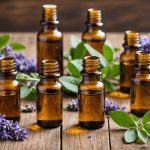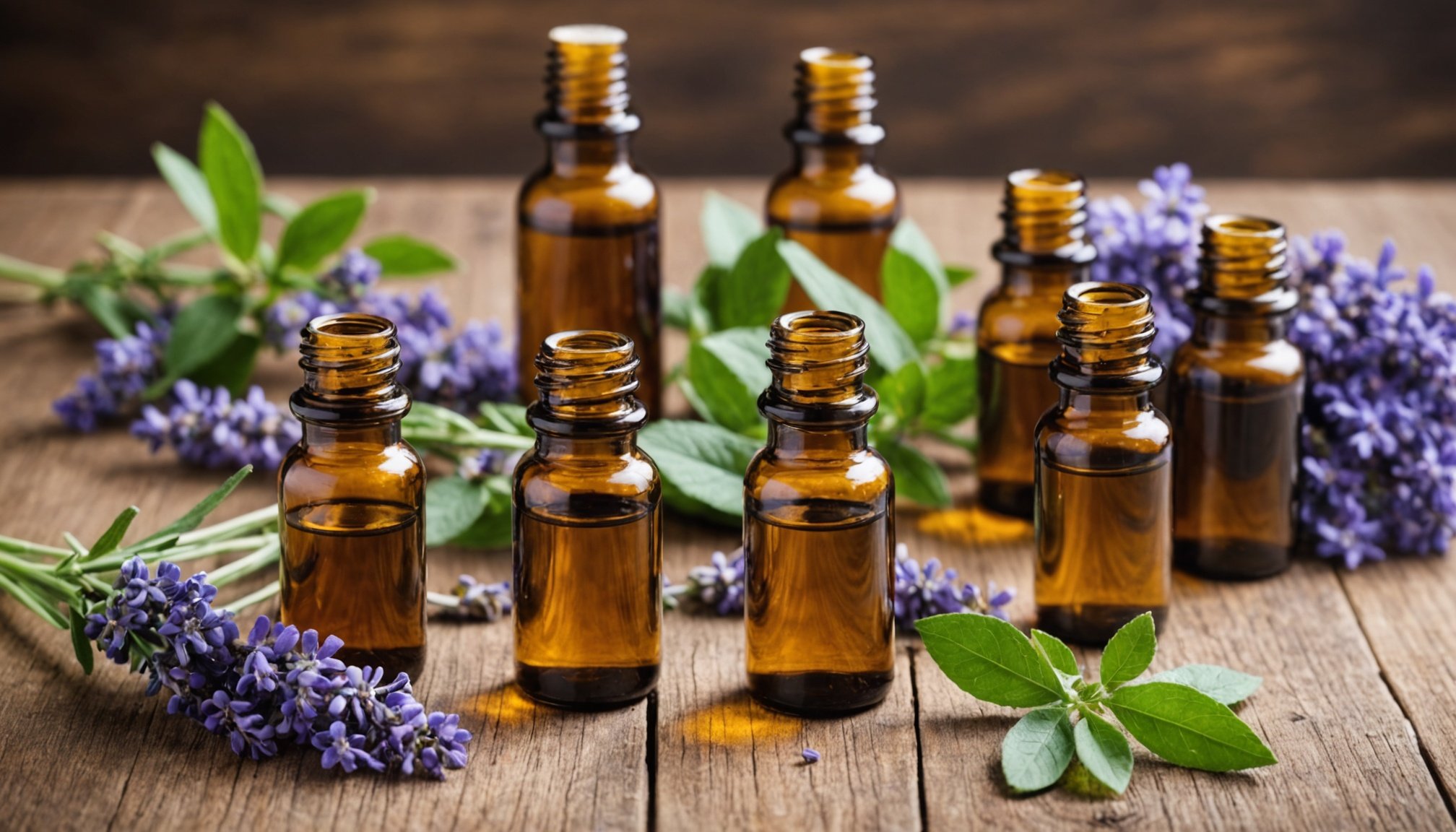In an increasingly fast-paced world, many individuals experience heightened levels of stress and anxiety. Traditional methods of combating these issues, like therapy or medication, work well for some but may not suit everyone’s needs. This is where aromatherapy comes into play. By using essential oils, you can create a calming environment that promotes relaxation and emotional balance. This article delves into how you can effectively utilize aromatherapy to alleviate anxiety, enhance your mental health, and foster a sense of well-being right in your everyday environment.
Understanding Aromatherapy and Essential Oils
Aromatherapy is the practice of using essential oils extracted from plants to enhance physical and emotional well-being. These oils possess natural therapeutic properties. They can be inhaled, applied to the skin, or used in diffusers to fill your space with soothing scents. The benefits of aromatherapy are backed by research that highlights its potential effects on stress, anxiety, and overall health.
Have you seen this : What are the psychological benefits of engaging in creative activities, and how can you incorporate them into your life?
Essential oils are concentrated plant extracts that encapsulate the unique fragrance and beneficial compounds of the plant. Common oils used in aromatherapy include lavender, chamomile, eucalyptus, and peppermint. Each oil has its own set of properties that can aid in various aspects of health and relaxation. For instance, lavender oil is widely known for its calming effects, making it an ideal choice for those struggling with anxiety. Studies have shown that lavender can significantly decrease feelings of restlessness and promote a more restful sleep.
Using aromatherapy in your daily life can be as simple as adding a few drops of essential oil to a diffuser while you work or relax at home. You can also create a personal inhaler using your favorite oils for a quick relief during stressful moments. Understanding the properties of each oil allows you to tailor your experience to meet your specific needs, ensuring that your aromatherapy practice is effective in promoting relaxation and reducing stress.
Also to see : What are the dietary essentials for maintaining a healthy gut microbiome, and how can it affect your overall health?
The Benefits of Aromatherapy for Stress and Anxiety
The effects of aromatherapy on stress and anxiety are profound. Many studies have demonstrated that inhaling the aroma of certain essential oils can trigger positive emotional responses in the brain. When you breathe in these scents, they travel through the olfactory system, which is linked to the limbic system—the part of the brain responsible for emotions and memories.
For instance, lavender oil has been shown to lower heart rates and blood pressure, making it a powerful ally in combating stress. Research indicates that individuals who regularly use lavender in their routine report feeling more relaxed and less anxious. Similarly, bergamot oil, which has a citrusy scent, can elevate mood and reduce feelings of tension.
Incorporating aromatherapy into your daily life can help create a peaceful sanctuary at home. You can create a calming atmosphere by diffusing essential oils during moments of high tension or before bedtime to enhance your sleep quality. Additionally, using essential oils in massage or during a warm bath can provide both physical and mental relaxation. The warm water helps to absorb the oils through your skin, enhancing their calming effects.
In summary, the benefits of aromatherapy extend beyond just pleasant scents. By choosing the right essential oils and integrating them into your routine, you can actively work towards alleviating stress and anxiety, improving your overall mental health.
How to Effectively Use Essential Oils in Your Environment
To maximize the effects of aromatherapy in your everyday environment, it’s essential to know how to use essential oils effectively. There are several methods of application, each catering to different preferences and circumstances.
-
Diffusion: Using an essential oil diffuser is one of the most popular methods. This device disperses the oil into the air, allowing you to breathe in its benefits. Choose oils like lavender, chamomile, or sweet orange for relaxation purposes. A few drops in your diffuser can create a calming atmosphere conducive to unwinding after a busy day.
-
Topical Application: Some essential oils can be applied directly to the skin, but it’s important to dilute them with a carrier oil first, such as coconut or jojoba oil. Applying lavender oil to pulse points, like wrists and temples, can help soothe anxious feelings. Always perform a patch test to check for skin sensitivity.
-
Inhalation: For immediate relief, you can place a few drops of your chosen oil on a cotton ball and inhale deeply. This method is particularly effective during moments of intense stress. Oils like peppermint and eucalyptus can also invigorate your senses, helping you to refocus.
-
Bathing: Adding essential oils to your bath can create a relaxing experience. Combine oils like lavender or ylang-ylang with Epsom salts for a soothing soak that eases both body and mind.
-
Creating Your Blend: Sometimes, a blend of oils may work best for your individual needs. Experiment with different combinations to discover what helps you feel most relaxed. A mix of lavender, bergamot, and frankincense can create a powerful calming effect.
By understanding and utilizing these methods, you can create an environment that promotes relaxation and mitigates feelings of anxiety. The right approach will significantly enhance your experience with aromatherapy and its stress-relieving properties.
Incorporating Aromatherapy into Your Daily Routine
Incorporating aromatherapy into your daily routine doesn’t have to be complicated. Here are some simple yet effective ways to make it a part of your life.
Start by choosing a few essential oils that resonate with you. Lavender, chamomile, and frankincense are great options for promoting relaxation and reducing anxiety. You can keep these oils in a small, easily accessible location, such as your desk or bedside table.
Set aside specific times during the day for your aromatherapy practice. For example, consider starting your morning with a few drops of citrus oil like lemon or grapefruit to energize you for the day ahead. In the evening, turn to lavender or cedarwood oils to help unwind after a long day.
You can also use essential oils to enhance your mindfulness practices. Try diffusing calming scents during your yoga or meditation sessions. The combination of mindful breathing and aromatic stimulation can deepen your relaxation and reduce feelings of stress.
Don’t forget about your personal space at work or during your commute. Carry a portable diffuser or use essential oil roll-ons to apply calming scents when you feel overwhelmed. Consider creating an evening sanctuary by filling your space with relaxing fragrances before you settle down for the night.
By making aromatherapy a consistent part of your daily routine, you can effectively manage stress and anxiety while cultivating a peaceful atmosphere that enhances your overall well-being.
In conclusion, aromatherapy offers a natural and effective way to combat anxiety and promote relaxation in your everyday environment. By understanding the myriad of essential oils available and their unique properties, you can tailor your approach to support your individual needs. Incorporating these calming scents into your daily routine enhances your overall mental health and provides a sanctuary amidst life’s demands.
Whether you choose to diffuse lavender oil during your evening wind down, apply chamomile oil to soothe tense areas, or create a tranquil space for meditation, the benefits of aromatherapy are within reach for everyone. By integrating these practices into your life, you can create a more balanced and peaceful existence.











